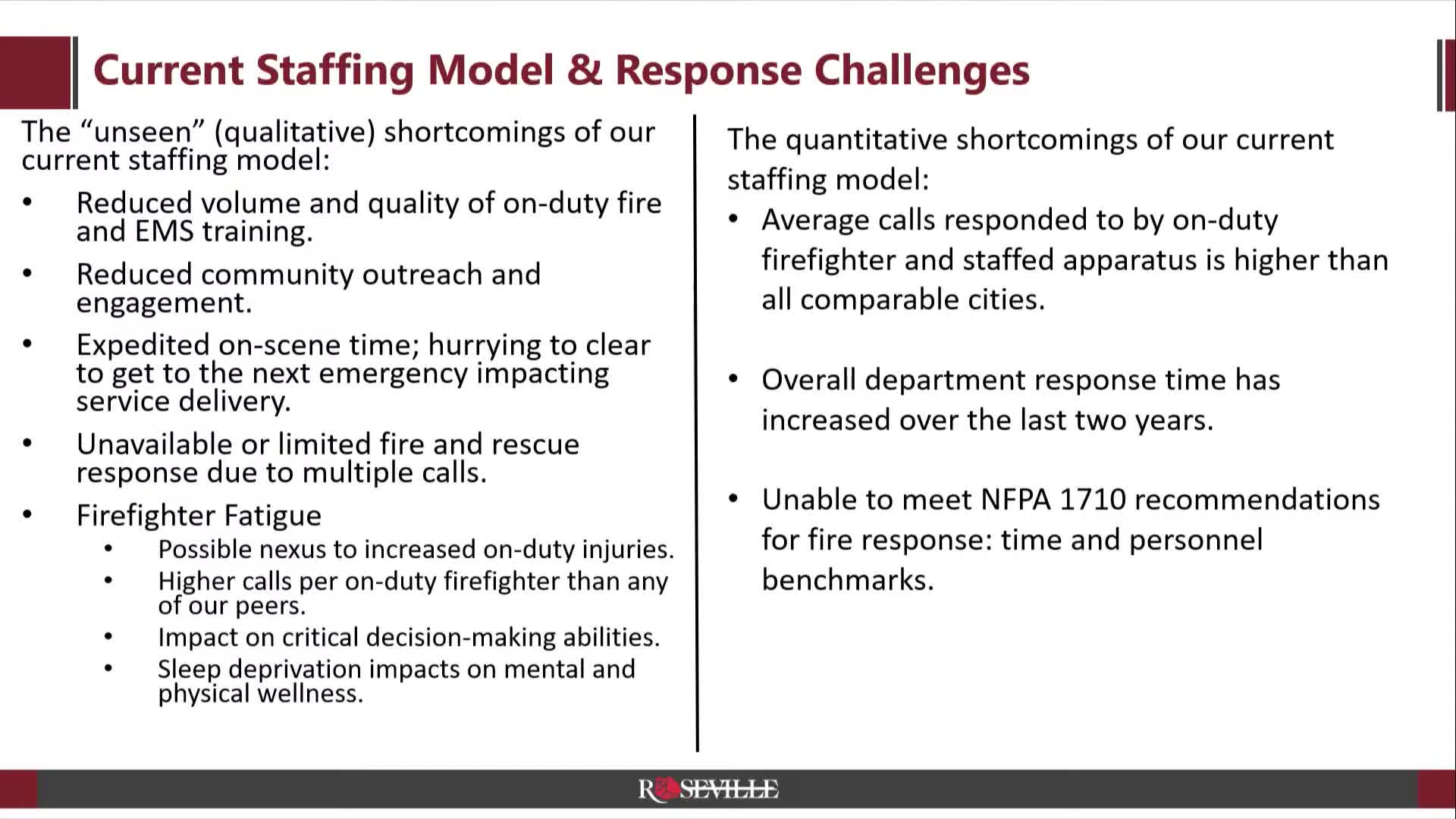Roseville accepts FEMA SAFER grant to add firefighters; council leans toward April 2026 start, asks staff for budget details
Get AI-powered insights, summaries, and transcripts
Subscribe
Summary
Council unanimously accepted a FEMA SAFER grant to hire firefighters. Staff explained the 36-month funding schedule, local-match ramps and operational timelines; council signaled preference for an April 2026 start but asked staff to return with specific budget impacts and options before finalizing timing.
The Roseville City Council voted unanimously on Oct. 13 to accept a FEMA SAFER (Staffing for Adequate Fire and Emergency Response) grant to add firefighter positions. The acceptance secures federal funding to support new frontline firefighter hires but requires a multi-year local match as the grant phases down.
Fire Chief (title given in transcript) presented the grant structure and operational timeline. The grant award totals roughly $3.9 million in federal funds for the three-year period of performance; required non‑federal (local) resources total about $2.4 million across the grant life. Under the grant’s ramp schedule, FEMA covers about 75% of personnel costs in the first and second grant years (city 25%); in the third grant year FEMA covers about 35% and the city covers about 65%; after the 36‑month period the city is responsible for 100% of the positions on its levy. The initial acceptance window required staff to respond by roughly Oct. 25.
The grant includes an initial 180‑day recruitment period after FEMA approves an award, which triggers the default recruitment-to-academy schedule and precedes the 36‑month period of performance. Staff said that for most applicants the earliest reasonable operational start tied to the grant period would fall in April 2026; an alternate start in September 2026 was previously discussed in budgeting scenarios. Staff described three-month recruit academies, expected lateral and entry-level candidate mixes and competitive hiring pressures from other Twin Cities departments also awarded SAFER funds. Chief described impacts of high call volume and the operational need for additional staffing, including improved ability to staff a ladder truck and to maintain a consistently staffed battalion chief vehicle.
Council and staff discussed fiscal impacts of an earlier start. Staff said moving the start to April 2026 would increase the levy impact in 2026 by about $185,000 compared with a later start; previously discussed September timing corresponded to an estimated $177,000 levy impact. Council asked staff to return with specific budget scenarios, including the effect of franchise-fee options and assumptions in the city manager’s not-to-exceed scenarios, prior to final budget adoption. Several council members expressed a preference to recruit earlier (April) to remain competitive with neighboring departments that had also received SAFER grants; others asked for cautious budgeting and asked that human-resources capacity not be reduced to accommodate the recruitment effort.
Council accepted the grant unanimously and directed staff to return with detailed budget options and a recommended start date that balances recruitment competitiveness and levy impacts. Staff noted the acceptance does not alone obligate the city to a specific start date; the council may choose a start between April and September 2026 after reviewing the requested budget analyses.
